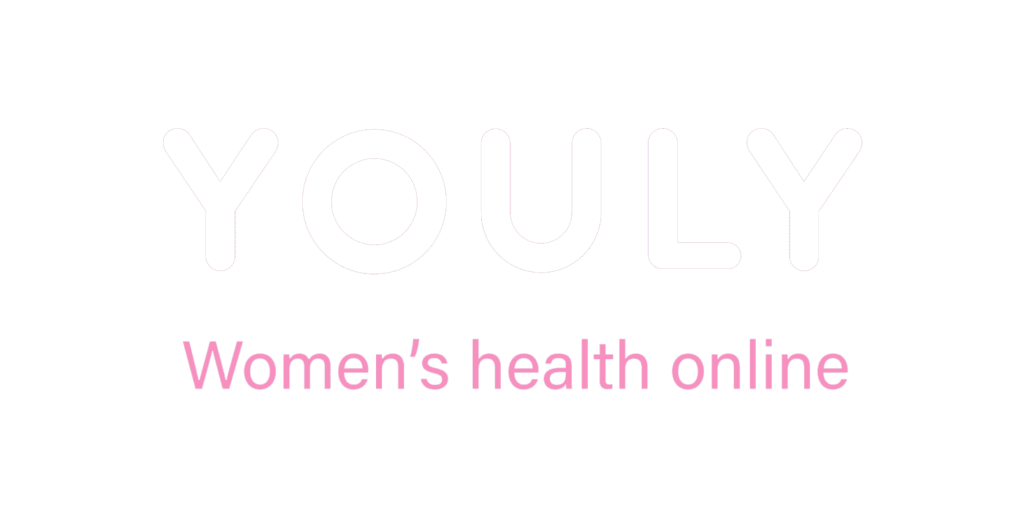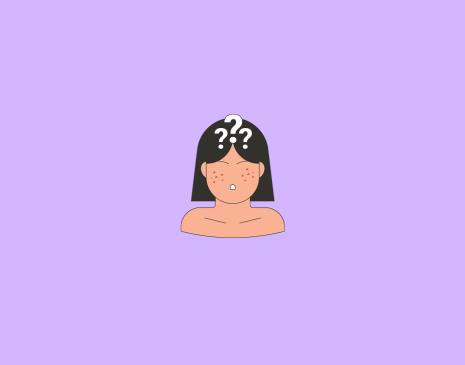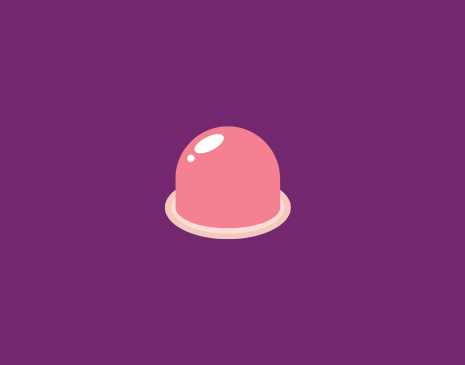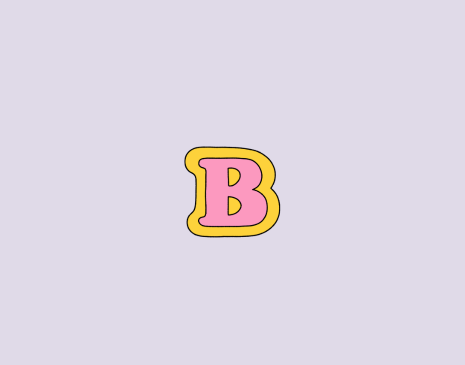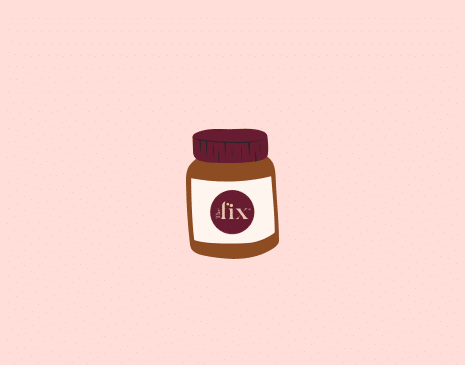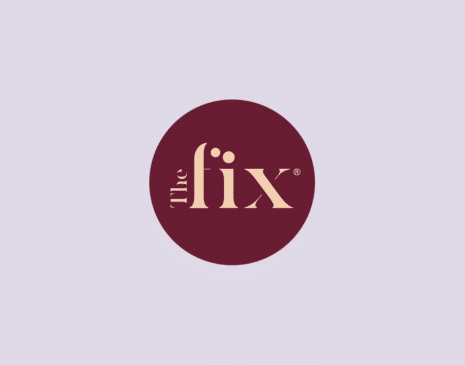In a world where confidence and self-assurance are paramount, acne can be an obstacle for adults striving for clear and radiant skin. If you’re one of the countless individuals struggling with persistent acne, you’re not alone. Fortunately, a powerful solution for acne blemishes is prescription acne medication for adults.
In this guide, we delve into the world of prescription acne medications specifically tailored to address the unique needs of adult skin. From understanding the underlying causes of adult acne to finding the most effective prescription options when treating acne, we’ve got you covered.
Understanding Adult Acne: Causes and Types of Acne
Adult acne can be a frustrating and confidence-shaking condition that affects individuals during their 20s, 30s, 40s, and beyond. While commonly associated with adolescence, certain types of acne can persist or even develop in adulthood.
Causes of Adult Acne
Hormonal Fluctuations
Hormonal changes, such as those experienced during menstrual cycles, pregnancy, menopause, or when using certain contraceptives, can be the cause of hormonal acne. These fluctuations can increase sebum (skin oil) production and clogged pores.
Genetics
A family history of acne can increase your risk of developing adult acne. Genetic predisposition plays a significant role in determining an individual’s susceptibility to acne.
Stress
Chronic stress can lead to hormonal imbalances, which can contribute to adult acne. High stress levels can also worsen existing acne.
Diet
A diet rich in high-glycemic foods (e.g., sugary and processed items) may exacerbate adult acne. These foods can increase insulin levels, causing inflammation and skin issues.
Skincare Products
Using the wrong skincare products, especially those containing comedogenic ingredients, can block pores and trigger acne breakouts.
Medications
Some medications, such as corticosteroids and hormonal therapies, can induce or worsen adult acne as a side effect.
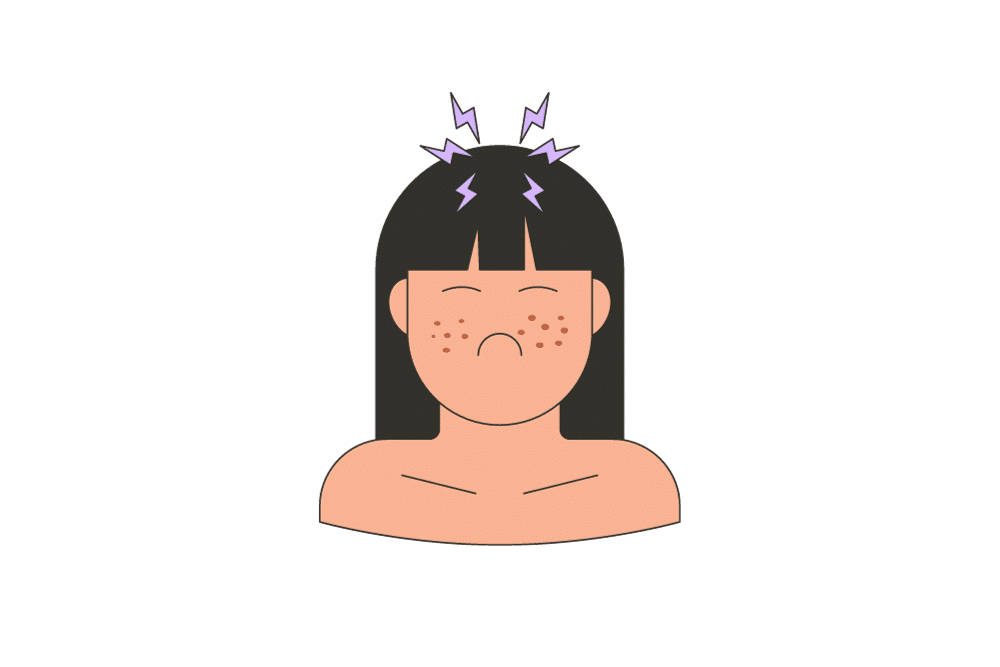
Types of Adult Acne
Comedonal Acne
- Characterised by blackheads and whiteheads.
- It occurs when pores become clogged with oil, dead skin cells, and bacteria.
- They are often seen on the forehead, nose, and chin (T-zone).
Inflammatory Acne
- It presents as red, swollen, and painful pimples or pustules.
- It is caused by the body’s inflammatory response to blocked pores.
- Commonly found on the cheeks, jawline, and chin.
Cystic Acne
- The most severe form of acne.
- Large, painful, deep-seated cysts beneath the skin’s surface.
- Can cause acne scars if not treated promptly.
Hormonal Acne
- Typically, it occurs around the jawline and chin.
- It is triggered by hormonal fluctuations, often related to the menstrual cycle or hormonal disorders.
- It tends to be recurrent and may require specialised treatment.
Fungal Acne (Malassezia Folliculitis):
- Often mistaken for traditional acne.
- Caused by an overgrowth of yeast-like fungi, Malassezia, in hair follicles.
- It presents as small, itchy, uniform red bumps or pustules, often on the chest, back (don’t worry – there are ways to get rid of back acne), and shoulders.
- Requires antifungal treatments rather than traditional acne products.
Acne Rosacea
- It is often mistaken for acne but a different condition.
- Presents as redness, visible blood vessels, and pimple-like bumps, primarily on the face.
- Typically, it affects adults over 30 and worsens with age.
- Prescription cream for rosacea is a suitable treatment option.
Understanding the causes and types of acne is essential for effective management. While various factors can contribute to this condition, seeking professional guidance from a dermatologist and adopting a personalised skincare routine can help you regain clear and healthy skin.
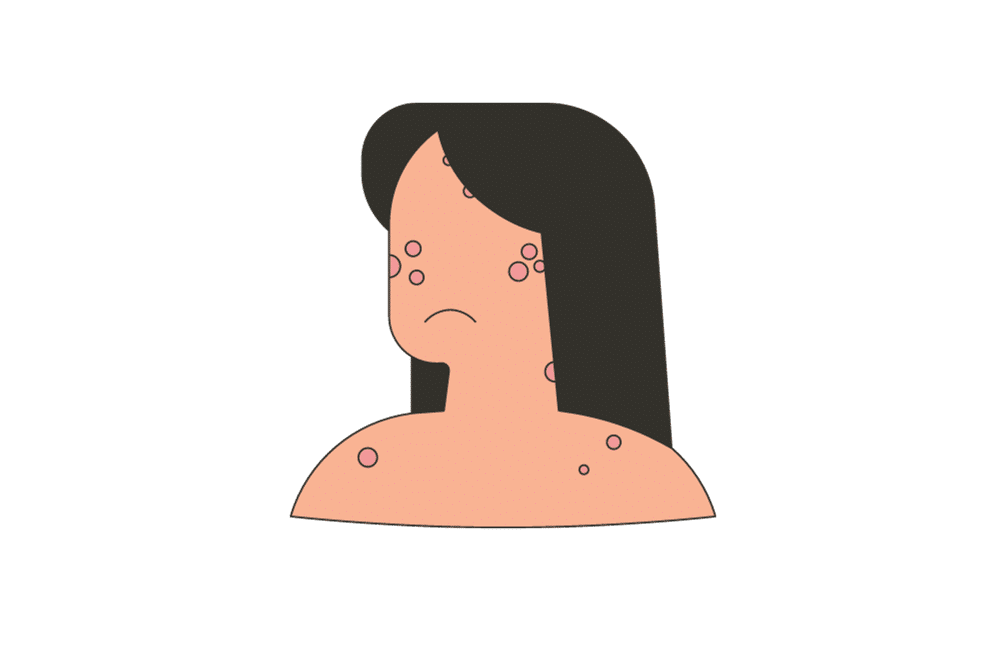
What is the Best Medicine for Adult Acne?
Whether you’re dealing with mild or severe acne, several acne treatments are available to help you combat those pesky breakouts and achieve clear, healthy skin.
Topical Solutions for Mild and Moderate Acne
Benzoyl Peroxide: Targeting Acne Lesions
For mild acne cases of adult acne, over-the-counter solutions like benzoyl peroxide can effectively target acne lesions and prevent further breakouts. This powerful ingredient unclogs pores, reduces inflammation, and eliminates dead skin cells, making it an excellent choice for mild or moderate acne.
Salicylic Acid: Clearing Away Dead Skin Cells
Salicylic acid is another effective topical treatment that can help treat acne that’s mild to moderate in nature. It works by exfoliating the skin, clearing away dead skin cells, and unclogging pores, making it a valuable acne treatment to have in your skincare routine.
Oral and Hormonal Treatments for Adult Acne
Oral Antibiotics: Controlling Bacterial Growth
If your acne is more severe or persistent, you may need to explore other options, such as oral antibiotics. These medications can help control bacterial growth in the hair follicles and reduce skin inflammation. However, it’s essential to use them under the guidance of a healthcare professional to avoid developing antibiotic resistance.
Hormonal Treatments: Balancing Hormone Levels
Hormonal treatments, on the other hand, are particularly beneficial for adult women dealing with hormonal acne. They can help balance hormone levels, which significantly affect acne development. These treatments can include birth control pills for acne or other hormonal medications prescribed by a healthcare provider.
Potent Solutions for Moderate to Severe Acne
Topical Retinoids: Targeting Stubborn Acne
Using a topical retinoid treatment can be a game-changer for those with moderate to severe acne. These potent medications can effectively target stubborn acne, but they should only be used under medical supervision due to potential side effects, including skin dryness and sensitivity.
Managing Inflammatory Acne and Skin Irritation
Topical Medications and Skin Redness
Inflammatory acne and acne lesions can also be effectively treated with topical antibiotics like topical benzoyl peroxide. These treatments can help reduce skin redness and inflammation, promoting the healing of acne-prone skin.
It’s important to remember that the best medicine for adult acne can vary from person to person. Factors like skin type, acne severity, and overall health are key in determining the most suitable treatment. To find the most effective acne solution for your specific needs, consult a healthcare professional or dermatologist who can provide personalised recommendations to treat adult acne effectively.
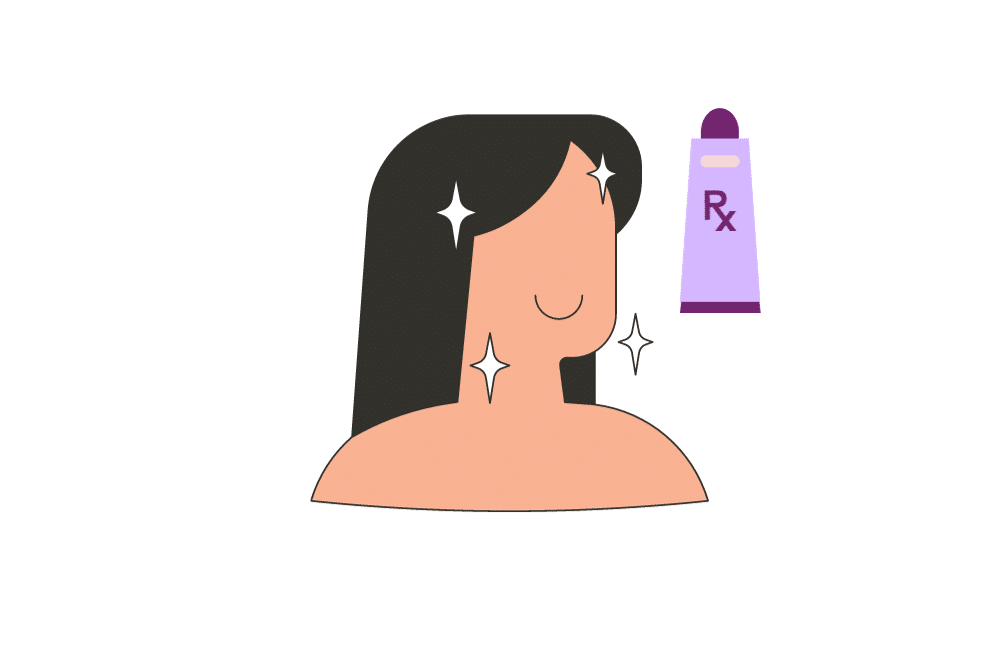
What Can a GP Prescribe for Acne?
A general practitioner (GP) can prescribe a variety of acne treatments, depending on the severity of the condition. For mild cases of acne, GPs often start with topical treatments or topical antibiotics. These medications can help unclog pores, reduce inflammation, and prevent further breakouts when used as part of a consistent skincare routine.
In moderate to severe acne cases, GPs may prescribe other acne medications known as oral antibiotics to combat the underlying bacteria and inflammation. Hormonal treatments, such as birth control pills for women, can also be recommended to regulate hormone levels, which can contribute to acne development.
For more severe and stubborn cases of acne that don’t respond well to other treatments, GPs may refer patients to dermatologists or prescribe oral isotretinoin. This potent medication can provide significant relief but has potential side effects and requires close monitoring.
Ultimately, a GP’s prescription for treatment of acne will be tailored to the individual patient’s needs, taking into consideration the type and severity of acne and any underlying health factors. Consulting with a healthcare professional is essential for determining the safest, most effective treatment plan for managing acne.
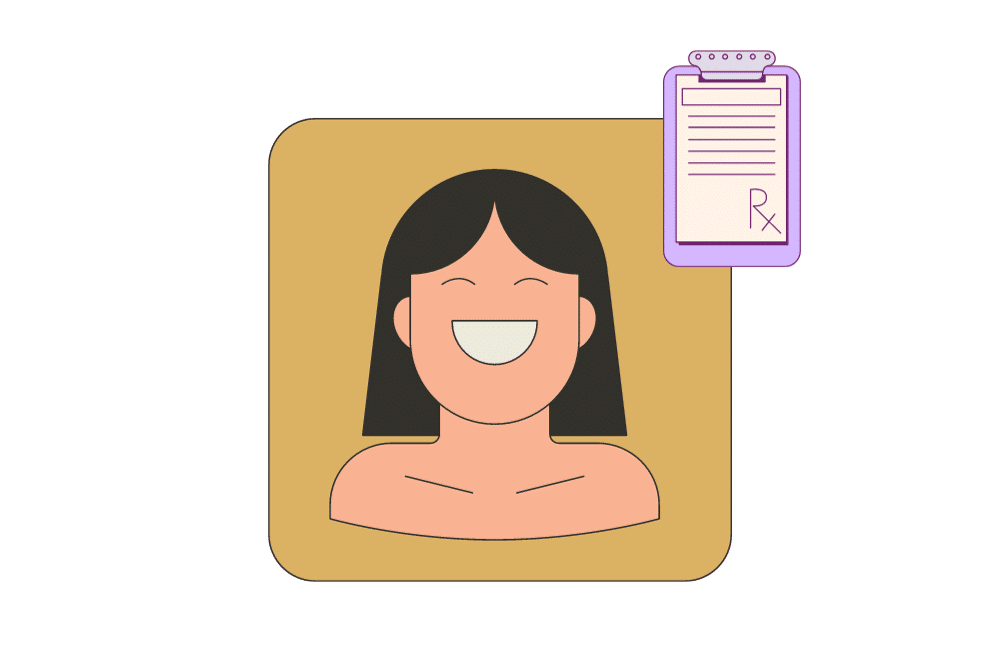
What is Prescribed for Severe Acne?
Severe acne often requires more aggressive treatments to manage the condition effectively. When it comes to prescribing treatments for severe acne, healthcare professionals typically consider a range of options, including:
Oral Antibiotics: These medications are prescribed to reduce the inflammation and bacterial infection associated with severe acne. They can help control the spread of acne lesions and are often used with topical treatments.
Oral Isotretinoin: A potent medication reserved for severe and stubborn cases of acne that haven’t responded to other treatments. It works by reducing oil production, preventing clogged pores, and addressing the root causes of acne. However, it has potential side effects and requires close medical supervision due to safety concerns.
Hormonal Treatments: For women with severe acne related to hormonal imbalances, oral contraceptives (birth control pills) may be prescribed to regulate hormone levels and improve skin condition. Anti-androgen medications can also be considered in some cases.
Topical Retinoids: In addition to oral treatments, severe acne may benefit from topical retinoids. While they are typically used in milder cases, they can still be a part of the treatment plan for severe or cystic acne, especially when combined with other therapies.
Intralesional Corticosteroid Injections: For severe acne cysts or nodules that are particularly painful or persistent, healthcare professionals may administer corticosteroid injections directly into the lesions. This can rapidly reduce inflammation and promote healing.
The choice of treatment for severe acne should be made in consultation with a dermatologist or healthcare provider. They will assess the individual’s condition, medical history, and potential side effects to determine the most appropriate and practical approach to managing severe acne. Regular follow-up appointments and monitoring are essential to ensure the safety and efficacy of the chosen treatment.
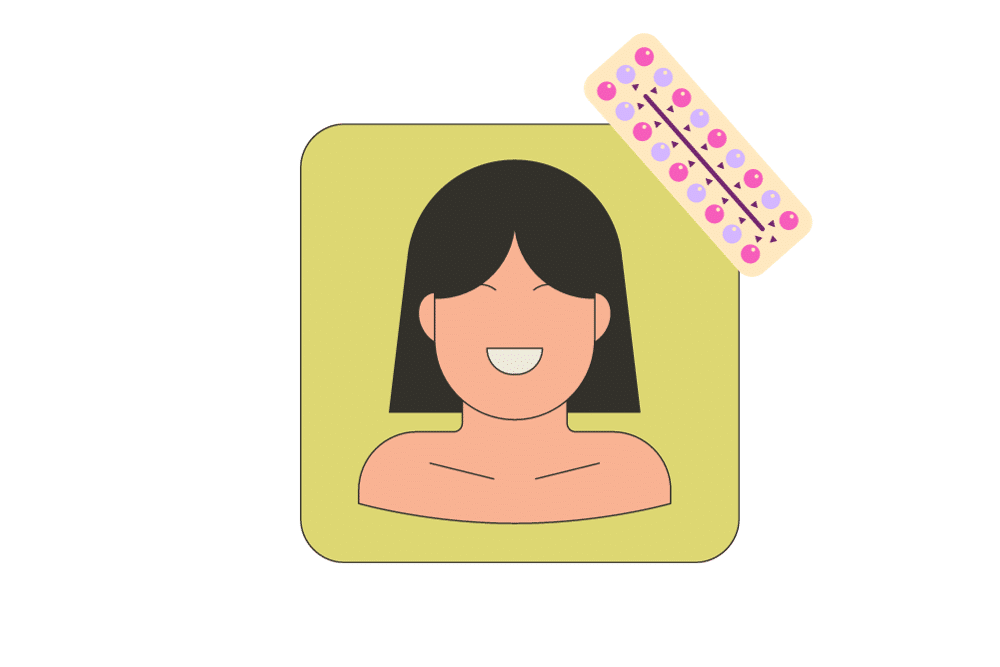
What is the Best Pill for Acne in Australia?
The choice of oral contraceptives (birth control pills) for managing acne in Australia can vary depending on individual factors and a healthcare provider’s recommendations. When seeking the best pill for acne, it’s essential to consult with a healthcare professional, typically a dermatologist or gynaecologist, who can assess your specific needs and prescribe the most suitable contraceptive based on your medical history, hormonal balance, and the severity of your acne.
Oral contraceptives are sometimes prescribed to regulate hormone levels, particularly in females, as hormonal imbalances can contribute to acne development. These medications can help control excess oil production and reduce the frequency and severity of breakouts.
To find the best oral contraceptive for acne in Australia, it’s important to have a thorough discussion with your healthcare provider, who will consider various factors and recommend a specific pill tailored to your circumstances. Keep in mind that the effectiveness of these contraceptives for acne can vary from person to person, and it may take some time to see noticeable improvements in your skin.
